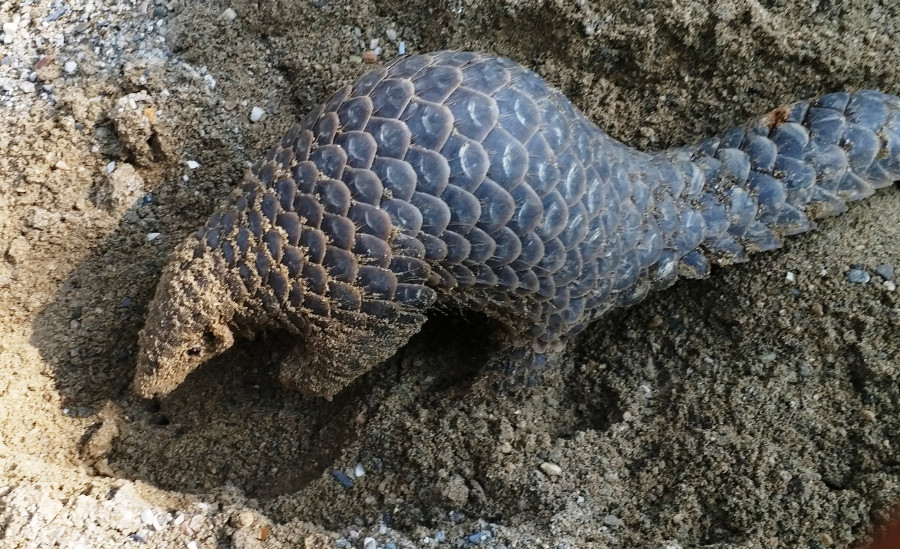Madhesh Province
Pangolin conservation runs effectively in Makwanpur’s buffer zone community forests
As part of conservation efforts, for the past three years, a community-based unit has been raising awareness about the importance of conserving pangolins in coordination with the Zoological Society of London.
Shankar Acharya
A community-based anti-poaching unit, which was formed three years ago to control poaching and illegal trafficking of endangered pangolins in two buffer zone community forests in Makwanpur district, has been effective in conserving pangolins in the area.
As part of its conservation efforts, for the past three years, the unit has been raising awareness in the settlements in the buffer zone areas about the importance of conserving pangolins, in coordination with the Zoological Society of London (ZSL), a charity devoted to the worldwide conservation of animals and their habitats.
According to the field office of the ZSL in Parsa, the awareness programmes are fruitful. Prachanda Maharjan, an administrative officer of the ZLS, said that they have been making joint efforts with Padampokhari Community Forest Users Group and Chuchche Khola Community Forest Users Group to conserve pangolins.
In 2017, two buffer zone community forests were declared pangolin conservation areas. Maharjan said, “We have been informing locals that pangolins are farmers friendly wild animal. They are regarded as a natural pest controller. ”
According to him, these species play a positive role in the ecosystem. Maharjan said, “Pangolins search for prey by digging the farmlands due to which the farmlands become fertile.”
After being aware of the role pangolins play in making soil fertile, locals have had a shift in attitude towards the animals and have rescued and handed over nine pangolins to the unit from the Chuchche Khola Community Forest until now. “Today, locals are well aware of the importance of pangolins. They are also not afraid of pangolins anymore. Even if they find pangolins near human settlement they handed over them to the unit,” said Maharjan.
Pangolin, also called a scaly anteater, is a shy, non-aggressive, nocturnal, burrowing mammal. A total of eight species of pangolins are found in the world—four in Africa and four in Asia. Eastern districts across the Chure range, such as Sindhupalchok, Kavrepalanchok, Bhaktapur, Makawanpur, Dhading and some western districts are prime habitats of two genera of the Asian pangolin—Chinese pangolin (Kalo salak) and Indian pangolin (Rato salak) in Nepal.
Conservationists globally allege that pangolins are being poached at a rate that is over 3,000 times higher than that of rhinos. Pangolin scales are used in traditional Chinese medicine, as the scales are believed to cure illnesses, heart diseases, cancer and female reproductive disorders. Pangolin meat is considered a delicacy and is in high demand in both China and Vietnam.
Because of this, all pangolin species are currently listed under the Convention on International Trade in Endangered Species of Wild Fauna and Flora Appendix II. It is also protected in Nepal under the National Park and Wildlife Conservation Act 1973. As per the rule, anyone involved in trading in pangolins (conserved species) could be slapped a fine of up to Rs 500,000 and one year to 10 years jail term.




 9.89°C Kathmandu
9.89°C Kathmandu














